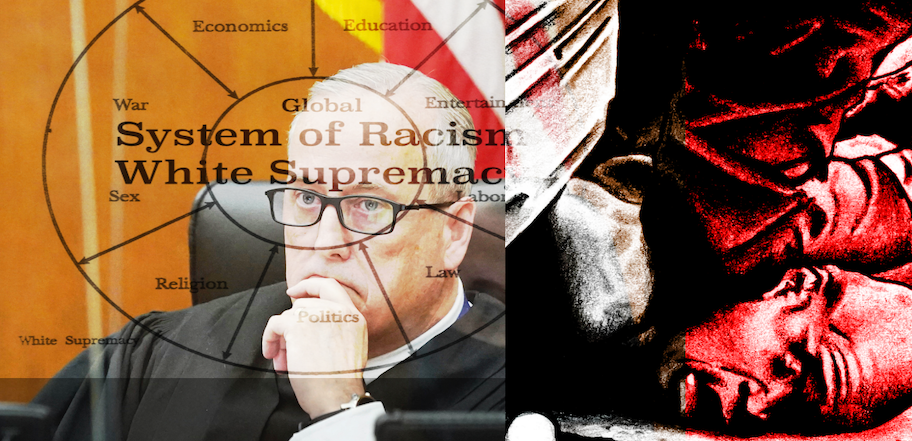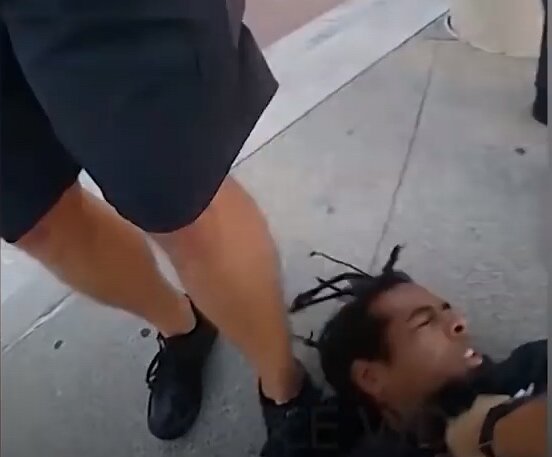“Welcome to Hell” is a report on the abuse and inhuman treatment of Palestinians held in Israeli custody since 7 October 2023. B’Tselem collected testimonies from 55 Palestinians held during that time and released, almost all with no charges. Their testimonies reveal the outcomes of the rushed transformation of more than a dozen Israeli prison facilities, military and civilian, into a network of camps dedicated to the abuse of inmates as a matter of policy. Facilities in which every inmate is deliberately subjected to harsh, relentless pain and suffering operate as de-facto torture camps.
The testimonies clearly indicate a systemic, institutional policy focused on the continual abuse and torture of all Palestinian prisoners held by Israel:
Frequent acts of severe, arbitrary violence; sexual assault; humiliation and degradation, deliberate starvation; forced unhygienic conditions; sleep deprivation, prohibition on, and punitive measures for, religious worship; confiscation of all communal and personal belongings; and denial of adequate medical treatment – these descriptions appear time and again in the testimonies, in horrifying detail and with chilling similarities.
Over the years, Israel has incarcerated hundreds of thousands of Palestinians in its prisons, which have always served, above all, as a tool for oppressing and controlling the Palestinian population. The stories presented in this report are the story of thousands of Palestinians, residents of the Occupied Territories and citizens of Israel, who have been arrested since the beginning of the war, as well as Palestinians already incarcerated on 7 October who experienced the massive increase in hostility from prison authorities since that day. 2
In early July 2024, there were 9,623 Palestinians held in Israeli prisons and detention facilities almost double the number just before the war began. Of these, 4,781 were detained without trial, without being presented with the allegations against them, and without access to the right to defend themselves, in what Israel terms "administrative detention."3 Some were jailed simply for expressing sympathy for the suffering of Palestinians. Others were taken into custody during military activity in the Gaza Strip, on the sole grounds that they came under the vague definition of "men of fighting age." Some were imprisoned over suspicions, substantiated or not, that they were operatives or supporters of Palestinian armed groups. The prisoners form a wide spectrum of people from different areas, with varying political opinions and only thing in common – being Palestinian.
The prisoners’ testimonies lay bare the outcomes of a rushed process in which more than a dozen Israeli prison facilities, both military and civilian, were converted into a network of camps dedicated to the abuse of inmates. Such spaces, in which every inmate is intentionally condemned to severe, relentless pain and suffering, operate as de-facto torture camps.
The abuse consistently described in the testimonies of dozens of individuals held in different facilities was so systematic, that there is no room to doubt an organized, declared4 policy of the Israeli prison authorities. This policy is implemented under the direction of the Minister of National Security Itamar Ben Gvir, whose office oversees the Israel Prison Service (IPS), with the full support of the Israeli government and Prime Minister Benjamin Netanyahu.
The heinous attack by Hamas and other armed Palestinian organizations on 7 October and the widespread targeting of civilians deeply traumatized Israeli society, evoking deep-seated fears and an instinct for revenge among many. For the government and Minister Ben Gvir, this provided an opportunity to press harder with applying their racist ideology, using the oppressive mechanisms at their disposal. These include the prison system, for which they designed a policy aimed at trampling the basic rights of Palestinian prisoners underfoot.
On 18 October, the minister in charge declared a "prison state of emergency" as part of emergency legislation,5 producing a serious, substantive violation of the most basic human rights of Palestinian prisoners. Koby Yaakobi, a close associate of Minister Ben Gvir appointed by him as IPS Commissioner in the height of the war, declared his intent to "revolutionize" the IPS in keeping with the minister’s policies as soon as he took office, naming the downgrading of prison conditions a top priority.6
As the testimonies reveal, the new policy is applied across all prison facilities and to all Palestinian prisoners. Among its main tenets are unrelenting physical and psychological violence, denial of medical treatment, starvation, withholding of water, sleep deprivation and confiscation of all personal belongings. The overall picture indicates abuse and torture carried out under orders, in utter defiance of Israel’s obligations both under domestic law and under international law.
A clear indicator of the severity of the situation and the moral degradation of the Israeli prison system can be seen in the number of Palestinian prisoners who have died in Israeli custody – no less than 60. The report includes testimonies given to B’Tselem regarding three of these deaths. Thaer Abu ‘Asab, a 38-year-old from Qalqiliyah held in the Negev (Ketziot) Prison, was found dead in his cell on 18 November 2023. On his body were severe signs of violence.7 ‘Arafat Hamdan, a 24-year old diabetic from Beit Beit Sira who relied on insulin treatments, was found dead in his cell on 24 October 2023, two days after his arrest. The testimonies reveal he was denied proper medical treatment. Muhammad a-Sabbar, a 20-year-old from the town of a-Dhahiriyah who had an intestinal disease requiring a special diet, died at Ofer Prison on 8 February, according to testimonies due to lack of proper nutrition, poor medical care and brazen disregard for his condition.
The transition from what appears to have initially been spontaneous acts of vengeance to a permanent, systematic regime stripping away all protections designed to uphold and ensure the most basic rights of Palestinian prisoners was made possible when the government exploited its powers to enact draconian, injurious "emergency regulations" and applied them in a brazen, gross violation of multiple norms and obligations under Israeli law, international human rights law, the laws of war and humanitarian law. The violations included the widespread, systematic and prolonged commission of the crime of torture.8 Equally important, in these actions, Israel is trampling basic human morality underfoot along with the most protected human rights of prisoners held in state custody.
The legal gatekeepers, such as the High Court of Justice and the State Attorney’s Office, ostensibly entrusted with upholding the rule of law and protecting human rights, have bowed their heads in submission to Ben Gvir’s agenda, and allowed abuses and the total dehumanization of these prisoners to become the premise for the entire system’s operation. The result is a system that specializes in torture and abuse, where, at any given moment, many thousands of Palestinians are kept behind bars, most without trial, and all in inhuman conditions.
Testimonies from inside: The reality in Israel’s torture camps
The testimonies given to B’Tselem reveal the following prevalent, consistent and widespread conditions.
Overpopulation and crowding in cells: The testimonies indicate that cell occupancy more than doubled. Cells intended for six prisoners held 12 to 14 prisoners at a time, with "excess" inmates forced to sleep on the floor, sometimes with no mattress or blanket.
After 7 October 2023, [...] the prison administration collectively punished us on a regular basis. The first thing was increasing the number of prisoners in each cell from six to 14. This meant reduced privacy and a much longer wait to use the toilet in the cell. In addition, the new detainees who came to the cell had to sleep on the floor, because there were only three bunk beds.
From the testimony of S.B., a resident of East Jerusalem. Read the full testimony here
No sunlight and no air to breathe: Some prisoners found themselves locked in their cells throughout the entire day; others were allowed out for an hour once every few days in order to shower. Some never saw daylight during their time in prison.
We were also forbidden to go outside to the yard, unlike before. For 191 days, I didn’t see the sun.
From the testimony of Thaer Halahleh, 45, a father of four and resident of Kharas in Hebron District, who was held in the Ofer and Nafha prisons. Read the full testimony here
Violent roll calls, increased frequency: According to the testimonies, roll calls and/or cell searches occur three to five times a day. In most cases, inmates were forced to crowd together, facing the wall, with their heads bowed down to the floor and their hands interlocked on the back of their necks, in some cases kneeling in prostration as during prayer. These practices no longer serve their original purpose, and have become an opportunity for prison guards to unleash severe violence and another tool for humiliating and degrading prisoners.
We were counted three times a day. It was done in a humiliating way, with the guards shouting. The unit would come in heavily armed with gas and batons. [...] There was also a policy of collective punishment and random searches of the cells about once a week. They would force us to undress and then search us, take us out of the cells into the corridor and do a thorough search of the room. It could take an hour or even several hours, and included shouting, assaults and beatings with batons.
Withholding access to the courts, aid agencies and legal counsel: As the Emergency Regulations permit,9 the vast majority of the witnesses went days, weeks, and in some cases, months before being brought before a judge for the first time, and even then, the hearings took place remotely via Zoom. The menacing presence of the prison guards inhibited prisoners from complaining to the judges or reporting the torture they underwent.
They took us one by one to a room where we attended our hearings via Zoom. On the way there, IRF members punched me very hard in the chest. An Arabic- speaking guard was in the room, and he listened to the entire conversation between me, the judge, and the lawyer. He threatened that if I complained to the judge, I would pay. The lawyer told me before the hearing that the judges already knew about everything that was going on in the prison, so there was no point talking about it. Still, in the hearing he asked me, "Have you been exposed to violence in prison?" I didn’t dare answer, because I was afraid the guards would retaliate and beat me even more brutally. [...] Every time they took me to the room where we attended our court hearings on Zoom, I endured the same path of torture, beating and humiliation. All the inmates in the prison went through that.
From the testimony of Firas Hassan, 50, a father of four and resident of Hindaza in Bethlehem District, who was held in the Negev Prison (Ketziot). Read the full testimony here.
Meetings with legal counsel were denied for increasingly long durations, reaching as much as 180 days, on the pretext of "dynamic needs on the ground."10 Most of the witnesses interviewed for this report did not see their lawyers once during their entire incarceration. They were also prevented from meeting with representatives of the ICRC, aid and human rights organizations, the Public Defender’s Office,11 or other official oversight bodies.12 [MORE]


























































































































































































































































































